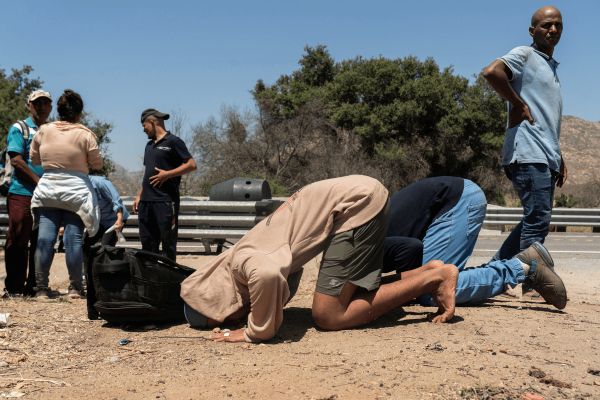Jul 3, 2024
Dioulde and Jallo are two of 20 Mauritanians living in a space that used to be rented out for quinceañeras in the largely working-class area of southeast Los Angeles, where the population is 89.1 percent Latino. Now, in a space that families used to celebrate their daughters’ 15th birthdays under the sprinkling lights of a chandelier, there are rows of futon-style beds lined up against the walls, with folded Muslim prayer rugs, gallon-sized water bottles, and plastic sandals neatly stacked alongside.
Read the Full Article

Already a subscriber? Login
